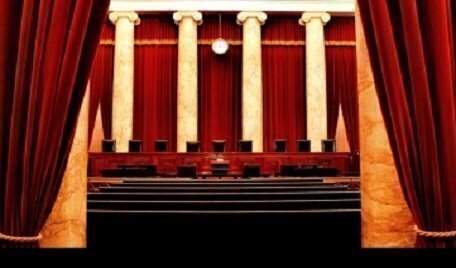The Supreme Court on Friday issued its opinion in the Dobbs v. Jackson case, overturning precedents related to abortion first set in the 1973 decision Roe v. Wade (1973) and a subsequent decision, Planned Parenthood of Southeastern Pa. v. Casey (1992), which held that the Constitution protects the right to seek a previability abortion.
 Link: Read the Court’s opinion in Dobbs v. Jackson Women’s Health Organization
Link: Read the Court’s opinion in Dobbs v. Jackson Women’s Health Organization
Writing for the majority, Justice Samuel Alito concluded that the Constitution does not confer an abortion right and that elected officials should decide the issue.
“Guided by the history and tradition that map the essential components of the Nation’s concept of ordered liberty, the Court finds the Fourteenth Amendment clearly does not protect the right to an abortion,” Alito wrote.
“The Constitution does not confer a right to abortion; Roe and Casey are overruled; and the authority to regulate abortion is returned to the people and their elected representatives.”
Justices Clarence Thomas, Neil Gorsuch, Brett Kavanaugh, and Amy Coney Barrett joined Alito’s opinion. Thomas and Kavanaugh wrote concurring opinions.
Chief Justice John G. Roberts Jr. agreed with the judgment but also wrote a separate opinion. Roberts concurred with the majority on the question of fetus viability first established in Roe and challenged by Dobbs. But he did not agree with the broader ruling issued on Friday by the majority.
“Surely we should adhere closely to principles of judicial restraint here, where the broader path the Court chooses entails repudiating a constitutional right we have not only previously recognized, but also expressly reaffirmed applying the doctrine of stare decisis. The Court’s opinion is thoughtful and thorough, but those virtues cannot compensate for the fact that its dramatic and consequential ruling is unnecessary to decide the case before us,” Roberts concluded.
The dissenting opinion from Justices Stephen Breyer, Sonia Sotomayor, and Elena Kagan disagreed with the Court’s overruling of Roe and warned of possible broader implications for other related precedents:
“Whatever the exact scope of the coming [abortion] laws, one result of today’s decision is certain: the curtailment of women’s rights, and of their status as free and equal citizens. . . . And no one should be confident that this majority is done with its work. The right Roe and Casey recognized does not stand alone. To the contrary, the Court has linked it for decades to other settled freedoms involving bodily integrity, familial relationships, and procreation.”
In particular, the dissenting justices pointed to precedents related to contraception and same-sex marriage that the Dobbs precedent could change.
A draft version of the Dobbs opinion leaked online earlier this year set the stage for Friday’s announcement. The opinion is expected to be scrutinized by legal scholars as states make their own laws related to abortion, or put into place existing statutes that were related to a possible overturn of the Roe precedent.
Scott Bomboy is the editor in chief of the National Constitution Center.
Related Resources
Interactive Constitution
14th Amendment Due Process Clause
Podcasts
The Dobbs v. Jackson Case: Part 1 | Part 2 | Part 3
Video
Jeffrey Rosen and Ali Velshi Discuss the Future of Roe v. Wade at the Supreme Court
Blog Posts
A short list of overturned Supreme Court landmark decisions
When the term ends, what will you think of your Supreme Court?
Educational Videos







